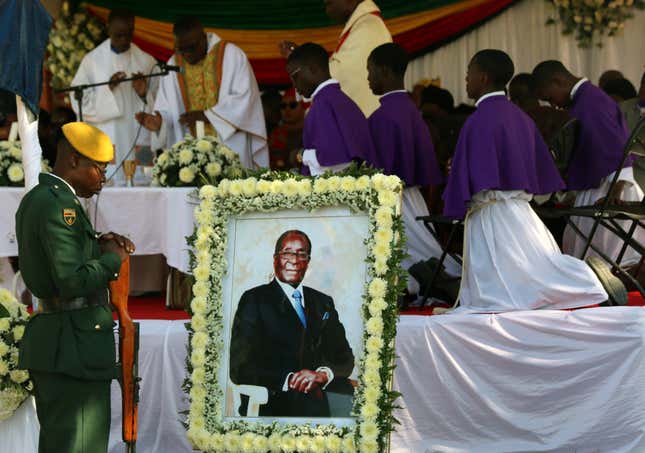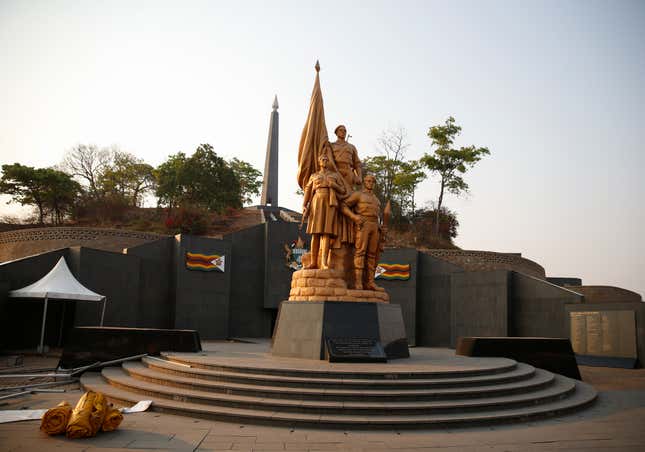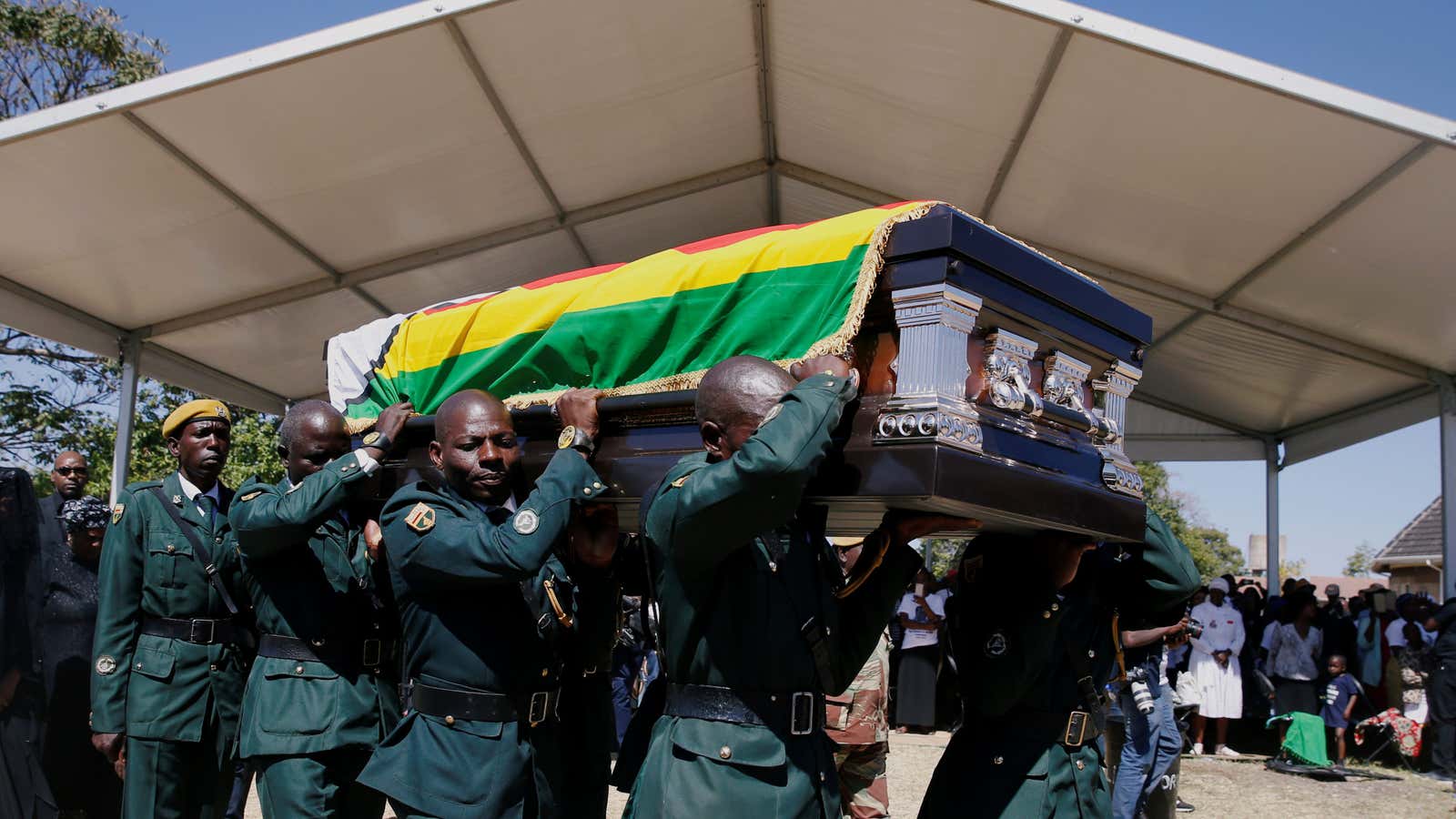Three weeks after his death in Singapore, Robert Mugabe was finally laid to rest at a private ceremony in his rural village of Kutama, not the Heroes Acre in Harare as was expected. This is despite the government constructing a mausoleum in his honor.
Behind the scenes, there was a battle raging on where the former Zimbabwe president’s remains were to be interred. The prolonged burial also effectively became a political fight between the victors and victims of the coup of November 2017. On one side was president Emmerson Mnangagwa and his supporters; on the other side, the Mugabe family and a group of disaffected politicians who were hounded out of the country.
Until his removal from power, Mugabe presided over all the funerals at the Heroes Acre, a monument designed and built by North Korean architects in 1981 on a hilltop at the outskirts of the city. This cemetery closely mirrors the design of the Revolutionary Martyrs’ Cemetery in Taesong-guyŏk, outside Pyongyang, in North Korea.

The funerals for heroes of the battle for independence were often elaborate, state-sponsored multi-day affairs that included the public display of the deceased, processions through Harare city center, full military honors and a long-winded speech by Mugabe that was broadcast simultaneously on radio and TV. Mugabe alone authored the official biographies and contributions of Zimbabwe’s heroes.
In a sense, Mugabe was the de facto biographer of the nation. Many of Zimbabwe’s heroes did not leave behind published memoirs or autobiographies because such an act would have contradicted the official narrative of the party and its leader.
Mugabe also used these funerals to rail against the British or any perceived enemies. Some of Mugabe’s most iconic speeches were made at this cemetery when he addressed members of the security forces and hired crowds sitting in the sun for long hours, wearing party t-shirts or memorial regalia.

His hero status was never questioned, but it was his actions and decisions when he was in office for almost four decades that raised many questions. Mugabe leaves behind a country in ruins. The promise of Zimbabwe as an economic powerhouse was shattered by series of self-serving political choices. The final act in Mugabe’s long and controversial career to snub the Heroes Acre is seen by many as a damning indictment of his successor Mnangagawa who has struggled since taking over power.
And more than anything his burial signals the symbolical death of the Heroes Acre—the only man who could preside over it is gone with it.
